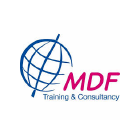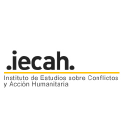INELIGIBLE COSTS
In addition to any other costs, which do not fulfil the eligibility conditions, the following costs shall not be considered eligible:
Debt and debt service charges
Debt and debt service charges
Provisions for potential future losses or for debts;
Provisions for potential future losses or for debts;
Interest owed
DOUBTFUL DEBTS
A “doubtful debt” in light of the Financial Regulation, is a claim made by a third party (e.g. supplier) against Humanitarian Organizaion and the litigation/dispute on such claim is on-going.
An example of a “doubtful debt” may be a case when a supplier claims a payment of a contract for delivery of goods against Humanitarian Organizaion, but Humanitarian Organizaion disputes proper or timely delivery of goods.
Costs of purchases of land or buildings unless otherwise specified
The costs of purchases of land or buildings is ineligibile, unless otherwise specified in the Specific Grant Agreement.
The circumstances that would allow for purchase of lands or buildings by the partner must be exceptional and such a purchase must be always included as a derogation clause in Article 6.2 of the Specific Grant Agreement.
The purchase of such facility may be exceptionally allowed, for example:
-
to comply with the principle of sound financial management, when the purchase of a specific building may be economically more justifiable than renting, rehabilitating or building one, or
-
if a facility with a specific purpose is already present, and it is not damaged to such extent that it would not be economically feasible to repair the damage.
Currency exchange losses
urrency exchange losses are not eligible, while currency exchange gains may be retained by the partner and do not have to be declared to ECHO. Gains must however be used for humanitarian aid purpose; in this regard, please see also the exchange rate dedicated section
Costs of transfers from the Commission
Costs of transfers from the Commission charged by the bank of the HQ of the partner. This does not apply to the transfer between the HQ to the field
Contributions in-kind from third parties
Contribution in-kind is a support which is not provided in cash (e.g. goods received for free) and which cost cannot be considered as eligible costs; please note that if the Partner contributes staff that it pays itself, this is not considered as an in-kind contribution. If the Partner contributes goods that it purchased beforehand, these can be considered as stocks and repaid at historical purchase price.
Excessive or reckless expenditure
Excessive or reckless expenditure
Deductible VAT, and recoverable duties and other charges
VAT
As a rule, the Partner should apply for VAT exemption.
If the exemption is obtained, the VAT will not be considered as an eligible cost of the action.
On the contrary, whether the VAT cannot be refunded, it may be considered eligible, if the following conditions are met:
The evidence does not have to be included in the Final Report, but must be available for Audit. In some cases, a copy of the applicable legislation may also be accepted as a proof of lack of VAT-exemption. In case there is no reply from the relevant authorities, the letter from the Humanitarian Organisation or its legal councel requesting the VAT exemption can be considered as a proof that VAT exemption was requested.
VAT rules are the same for implementing partners than for the lead applicant. The IP has to request an exemption and should be able to prove that it had requested the exemption.
The VAT status of the partner both at HQ and at field level should be indicated upfront in the section 10.7 of the Single Form and actualised in the final financial report.
Please note that when a partner receives a reimbursement of costs after the receipt of the final payment and VAT had been already paid by ECHO, it is necessary to reimburse these amounts to ECHO. In such cases, the partner should contact ECHO, which will issue a recovery order.
For VAT contact: ECHO-LEGAL-AFFAIRS@ec.europa.e
REFERENCE, DOCUMENTS & USEFUL LINKS
RULES OF APPLICATION, ARTICLE 187
EN
FR
GENERAL CONDITIONS, ARTICLES 8.1 AND 8.4
EN
FR
SINGLE FORM GUIDELINES, SECTION 10.7
EN





